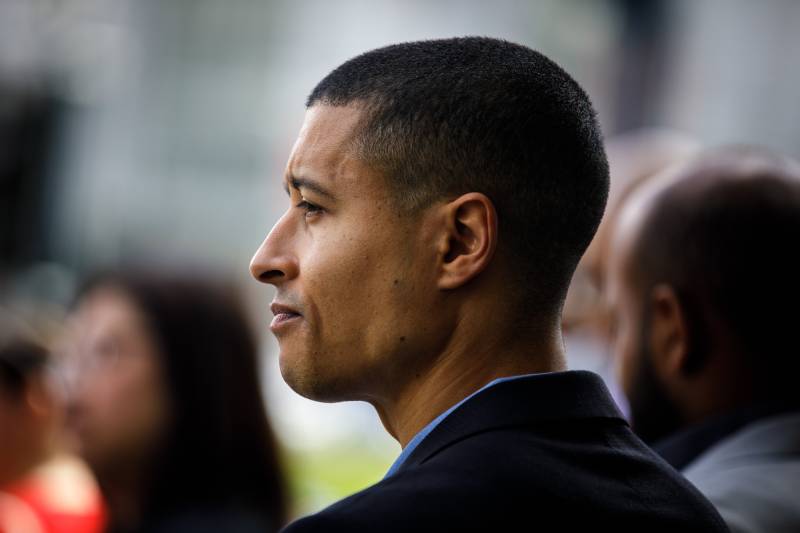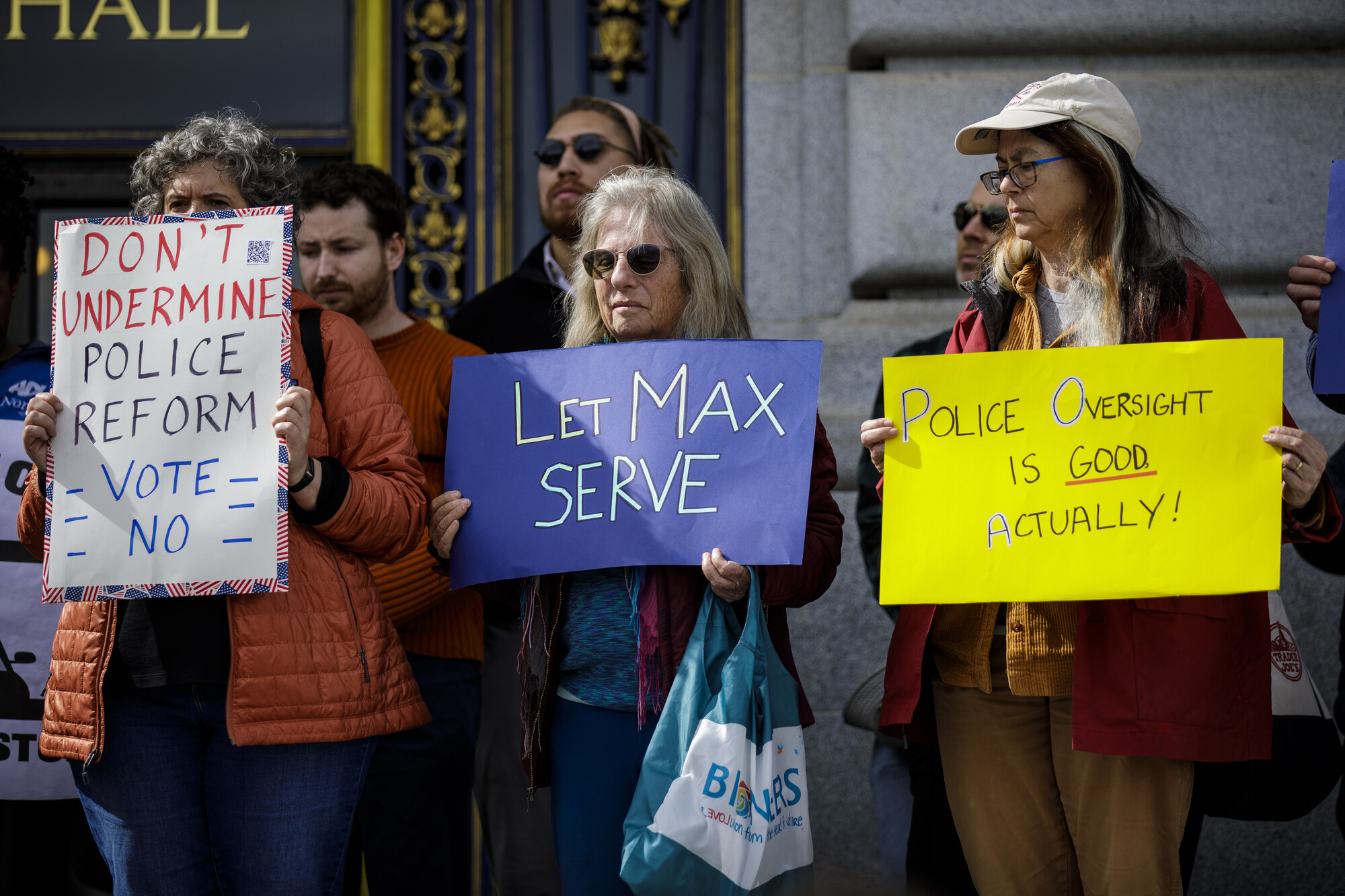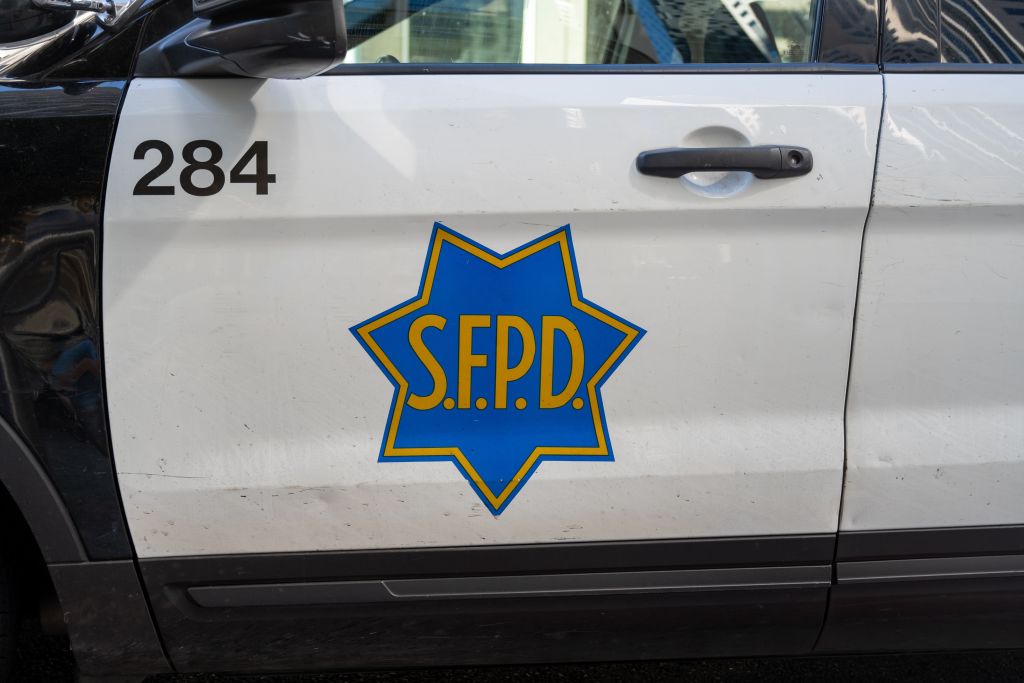San Francisco supervisors voted Tuesday to remove progressive police commissioner Max Carter-Oberstone, a move that could give Mayor Daniel Lurie greater influence over the commission but also one that some city officials and police reform activists worry will hurt efforts to improve law enforcement accountability.
The 9–2 vote came less than a month after Lurie moved to dismiss the commissioner before the end of his term next year in favor of one the mayor said would be more collaborative.
Carter-Oberstone was twice appointed to the oversight body by former Mayor London Breed, but he publicly clashed with her over public safety policies and exposed her controversial practice of having commission appointees sign undated resignation letters at the start of their terms. Without him as a reliable ally, Breed effectively lost control of the Police Commission, whose seven members include four appointed by the mayor.
According to Carter-Oberstone, Lurie’s office notified him three weeks ago that it would be seeking his removal after he made it clear during a previous meeting that he would not resign at the mayor’s request. Lurie has yet to provide a public explanation as to why he should be ousted from the role, the former police commissioner said.



